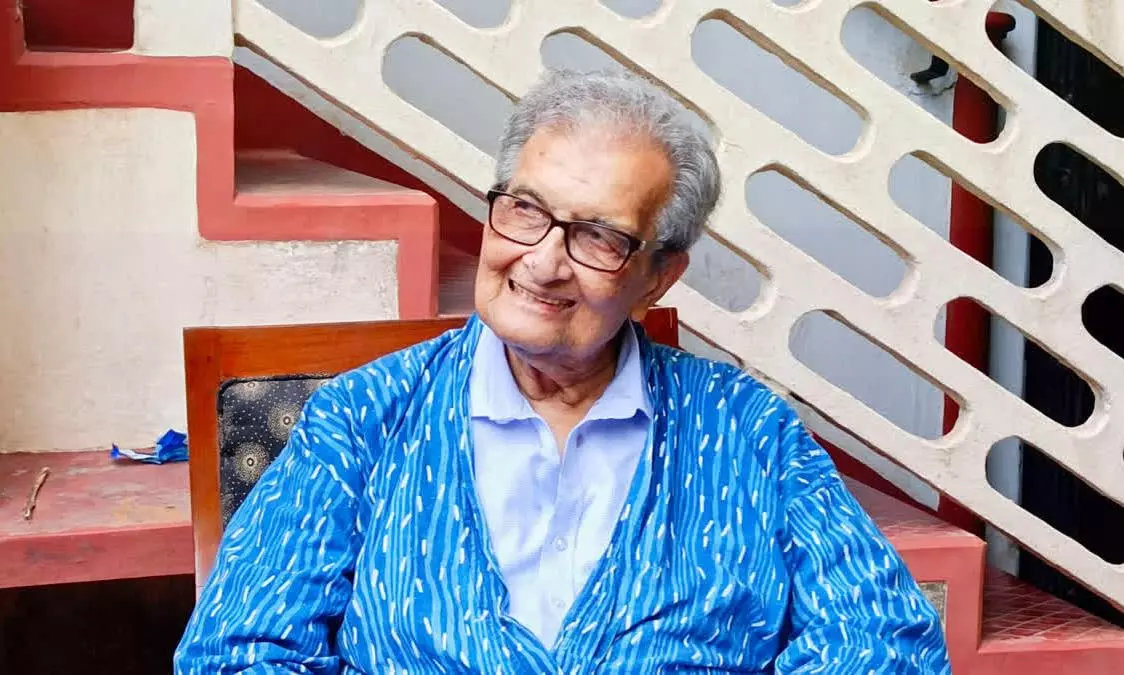
Economist Amartya Sen is alive, daughter dismisses fake news about death
text_fieldsAmartya Sen, the distinguished Indian economist and philosopher, is well and alive.
His daughter Nandana Sen took to social media to dismiss the fake news about his death which was first made by an account impersonating Nobel Prize winner Claudia Goldin.
She reassured concerned well-wishers and confirmed that her father is alive and well.
In her message, Nandana Sen wrote, "Friends, thanks for your concern but it's fake news: Baba is totally fine. We just spent a wonderful week together w/ family in Cambridge - his hug as strong as always last night when we said bye! He is teaching 2 courses a week at Harvard, working on his gender book - busy as ever!"
Amartya Sen is a Thomas W. Lamont University Professor and Professor of Economics and Philosophy at Harvard University. He had previously held the position of Master of Trinity College at the University of Cambridge.
Amartya Sen and his wife Emma Rothschild split their time between homes in Cambridge, Massachusetts, and Cambridge, England. He often spent his winter holidays in Shantiniketan, West Bengal.
He has four children - Nandana Sen, Indrani Sen, Antara Dev Sen, and Kabir Sen.
The news of his demise was shared on social media by someone impersonating Nobel Prize winner Claudia Goldin, one of his former students. In the post, the author expressed grief with a tweet that read, "A terrible news. My dearest Professor Amartya Sen has died minutes ago. No words."
The account was created in May 2023.
Born in 1933, Amartya Sen made significant contributions to the fields of welfare economics and development theory during his illustrious career.
One of his most groundbreaking works was in social choice theory, which had a profound impact on both political philosophy and economics. He is perhaps best known for his development of the "capability approach," which centres on people's capacity to achieve well-being and make choices that affect their lives.
In 1998, Amartya Sen was awarded the Nobel Prize in Economics for his pioneering work on poverty and inequality. His ideas have played a pivotal role in shaping global policy discussions, emphasising the significance of human development and social justice.
Throughout his career, Amartya Sen held academic positions and made noteworthy contributions to various fields, including welfare economics, social choice theory, economic and social justice, economic theories of famines, decision theory, development economics, public health, and well-being measurements for countries.























